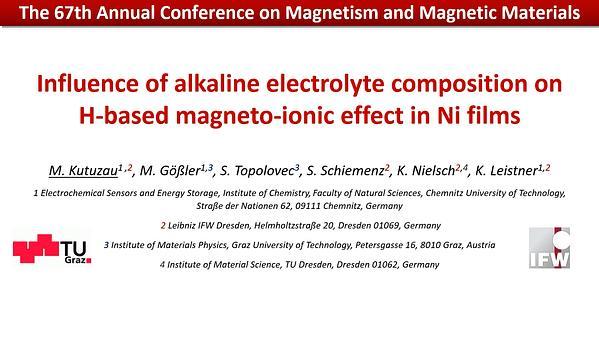Would you like to see your presentation here, made available to a global audience of researchers?
Add your own presentation or have us affordably record your next conference.
Magnonics based on the transfer of angular momentum in the form of spin waves provides a promising technology for wave-based information processing 1 and neuromorphic computing 2. A key challenge in realizing a viable spin-wave technology is the connection of multiple computational units into integrated magnonic circuits, which requires a scalable materials platform for low-loss spin-wave transport. Conventionally, magnonic waveguides are fabricated by patterning ferromagnetic metal or YIG films into narrow conduits. The spin-wave decay length in fully patterned nanoscopic waveguides is typically limited to a few mm. Here, we introduce a new spin-wave waveguiding structure consisting of a continuous YIG film and ferromagnetic metal nanostripes patterned on top 3. In this hybrid structure, dipolar coupling between the two magnetic materials defines nanoscopic spin-wave transporting channels within the YIG film, along which spin waves propagate with low loss. We demonstrate spin-wave decay lengths of ∼20 mm in 160-nm-wide waveguides at small magnetic bias fields. Moreover, we show that spin waves are efficiently guided through magnetically induced bends in the continuous YIG film (Fig. 1). The combination of low-loss scalable transport and efficient redirection of spin waves in our hybrid waveguiding structures provides a new strategy for the implementation of low-loss magnonic devices and integrated circuits without YIG nanopatterning.
